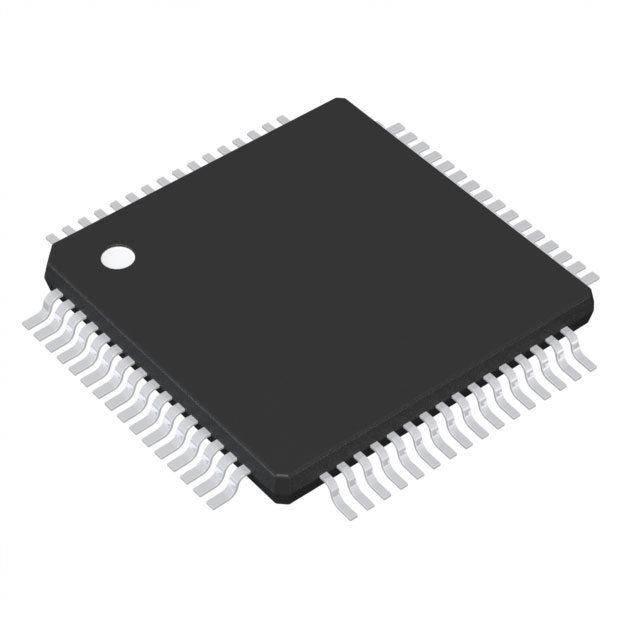

Texas Instruments
MSP430F147IPMR
Microcontrollers




.png?x-oss-process=image/format,webp/resize,p_30)


MSP430F147IPMR Description
MSP430F147IPMR is a microcontroller unit (MCU) from Texas Instruments' MSP430 family of low-power, 16-bit RISC architecture processors. The device is designed for a wide range of applications, including industrial, consumer, and medical electronics.
Description:
The MSP430F147IPMR is a mixed-signal microcontroller that combines a high-performance CPU with integrated peripherals and a variety of communication interfaces. It is manufactured using a 0.18µm CMOS process and is available in a 64-pin LQFP package.
Features:
- CPU: 16-bit RISC CPU with a clock speed of up to 8MHz.
- Memory: 16 kB of on-chip Flash memory, 512 bytes of RAM, and 2 kB of information memory.
- ADC: 12-bit ADC with up to 8 input channels.
- DAC: 8-bit DAC with 1 output channel.
- Timers: Multiple timer modules, including a real-time clock (RTC) and watchdog timer (WDT).
- Communication interfaces: UART, SPI, and I2C.
- Power management: Low-power modes, including standby and sleep modes.
- Security features: Peripheral protection and password protection.
- Operating temperature range: -40°C to +85°C.
- Input/Output (I/O) ports: Multiple I/O ports with configurable pins for various functions.
Applications:
The MSP430F147IPMR is suitable for a wide range of applications due to its low-power consumption, integrated peripherals, and communication interfaces. Some common applications include:
- Industrial control systems: Motor control, sensor interfacing, and data acquisition.
- Consumer electronics: Smart appliances, portable devices, and battery-powered gadgets.
- Medical devices: Patient monitoring systems, wearable medical devices, and diagnostic equipment.
- Energy management: Smart grid applications, energy harvesting systems, and power management for renewable energy sources.
- Automotive systems: In-vehicle infotainment systems, sensor interfaces, and body control modules.
- Home automation: Smart lighting, HVAC control, and security systems.
The MSP430F147IPMR's low-power capabilities, combined with its versatile features and communication interfaces, make it an ideal choice for a variety of embedded systems requiring efficient power management and robust performance.
Tech Specifications
MSP430F147IPMR Documents
Download datasheets and manufacturer documentation for MSP430F147IPMR
 Mult Devices 23/Feb/2018
Mult Devices 23/Feb/2018  MSP430x13x, 14x(1) Datasheet
MSP430x13x, 14x(1) Datasheet  MSP430x13x, 14x(1) Datasheet
MSP430x13x, 14x(1) Datasheet Shopping Guide
























.png?x-oss-process=image/format,webp/resize,h_32)










